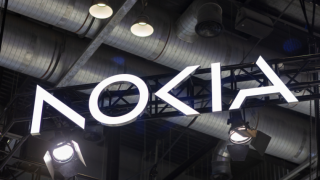Analysts have warned that Vodafone could seek to impose a more profit-driven culture at CWW as part of a strategy to bolster revenues.
CWW boasts over 100 multinational managed services customers, in addition to large UK retail contracts, with companies including Tesco and M&S which will all be inherited by Vodafone. Vittorio Colao, CEO at Vodafone, said at the time of the deal “strengthening (the) enterprise business both in the UK and internationally” was a main reason for the acquisition.
As murmurs in the market persisted, CWW shareholders were particularly unhappy with the approach the company took in securing large global enterprise clients. And Vodafone’s takeover could serve as a sharp reminder for large UK companies, which were seemingly enjoying CWW’s flexible approach, that they were getting a good deal.
“CWW’s problems stem from being sub scale in their business,” said Scott Morrison, managing VP, communications service provider markets at Gartner. “Flexibility is great if you are the customer that reaps the benefits but not great if you are a CWW shareholder that has to pay for it. Part of the issue is they have bent over backwards for too long for large-scale clients. Vodafone will change this ethos by industrialising the service it offers to CWW’s large portfolio of UK and international companies.”
Vodafone has operated its Vodafone Global Business (VGB) since 2006, but the company has struggled to expand its operation globally. For David Malony, principal analyst at Ovum, expanding VGB is what its tie-up with CWW is all about.
“Internally, Vodafone believes the enterprise business should be worth £10 billion and right now it is only valued at £1 billion. The strategy could be tailored to create a fixed mobile convergence and upsell fixed and mobile solutions to CWW’s existing corporate enterprise clients.”
Industry insiders have suggested savings in backhaul was a further pull behind the acquisition. Projections suggest the company could save as much as 30% as a result. Morrison doubts this is at all accurate considering the size of CWW. “Backhaul is an access portion, and most providers in the UK go to BT Openreach for the service,” he said. “CWW has fewer Ethernet PoPs than TalkTalk, Virgin Media Business and Sky so it is unlikely Vodafone will avoid going to BT Wholesale to get that density.”
Vodafone, overnight, becomes the UK’s second largest combined fixed-line and mobile operator, behind BT.
The UK incumbent reacted to the news by confirming to Capacity it was “monitoring the situation closely”. “BT has strong commercial relationships with both Cable&Wireless Worldwide and Vodafone so we are on standby to work with either party as the situation develops,” said a BT insider. UK retailer Tesco, one of CWW’s largest customers, refused to comment on the deal.




